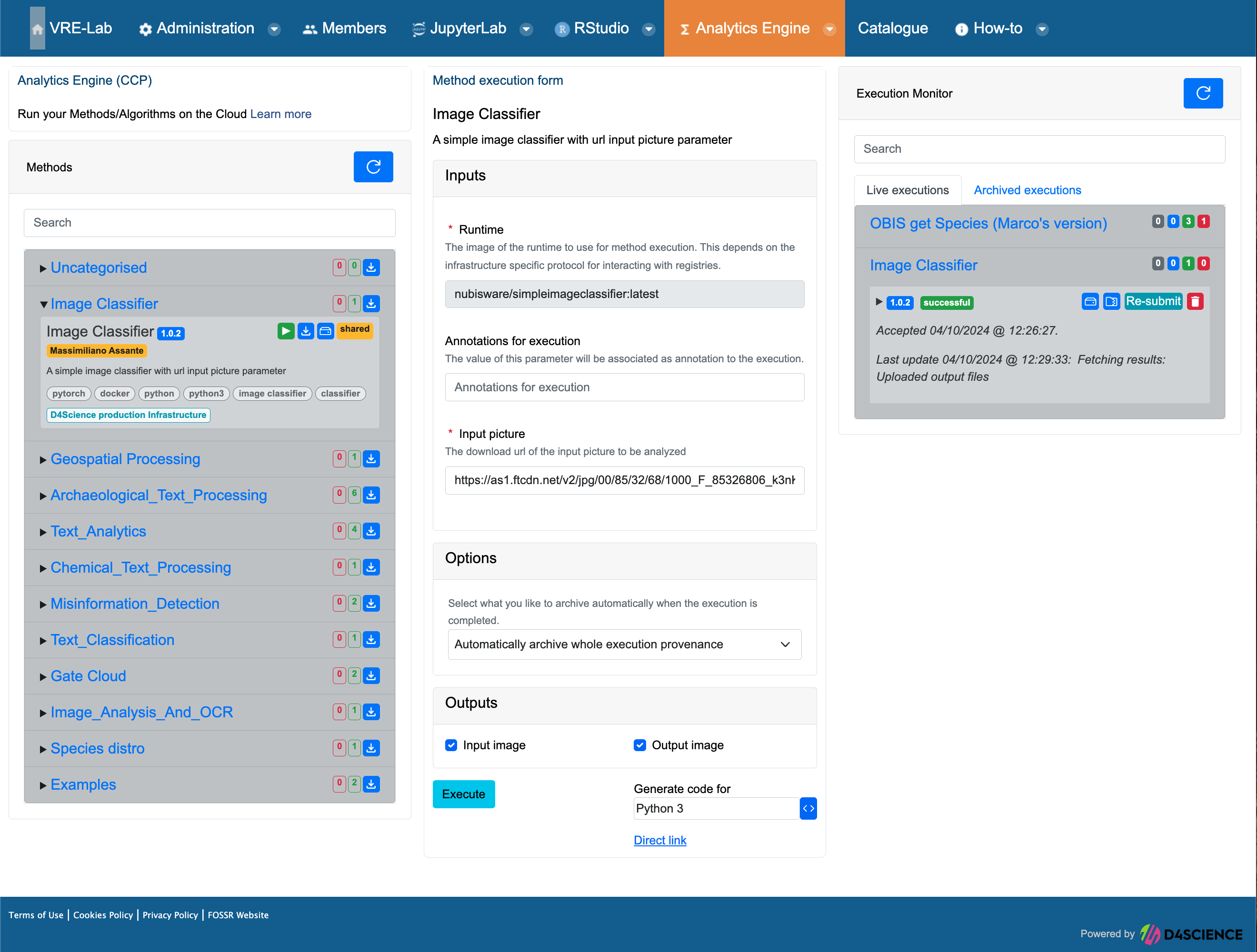▶️ Executing a Method in CCP
Running a method in the CCP platform is simple, but understanding how it works under the hood helps you make the most of it.
This guide walks you through the full execution process — from selecting a method to analyzing the output.
🧭 1. Locate the Method
Go to the Analytics Engine, and open the ☁️ Cloud Computing Platform (CCP) Page.

Select a method from the list on the left.
You can:
Search by keyword
Filter by category or author
Sort by name or version
When ready, click the  (Run) button next to the method.
(Run) button next to the method.
🧾 2. Fill in the Parameters
A form will appear, dynamically generated based on the method’s method.json.
You’ll typically find:
Required inputs: marked with an asterisk
*Optional parameters: configurable extras
File inputs: dropdowns or URL fields
Runtime selection: pre-filled and locked
📎 Tip: Use files from
🧩 3. Configure Archiving (Optional)
If you want to save the complete result of your execution (output files + logs + metadata), ensure to select the “Automatically archive whole execution provenance” option at the bottom of the form.
The output will be stored and downloadable later
The execution metadata will contain the full provenance of the run (📜 provo.xml)
🚀 4. Submit and Monitor
Click Run to start execution. The execution will appear in the Execution Monitor, where you can:
See real-time logs (
stdout,stderr)Track execution state (e.g. queued, running, finished)
View or download output files
📥 5. Retrieve Results
After completion, outputs are listed directly:
Textual outputs (e.g., summaries, logs) are displayed inline
Files (e.g., images, CSVs) are downloadable
If archiving was enabled, the full result is stored and accessible from the workspace
✅ Summary
| Step | Description |
|---|---|
| Choose method | From the Analytics Engine list |
| Fill parameters | Inputs and options in the dynamic form |
| Enable archive | If you want full results saved |
| Monitor execution | Logs, state transitions |
| Download results | From inline output or archived data |